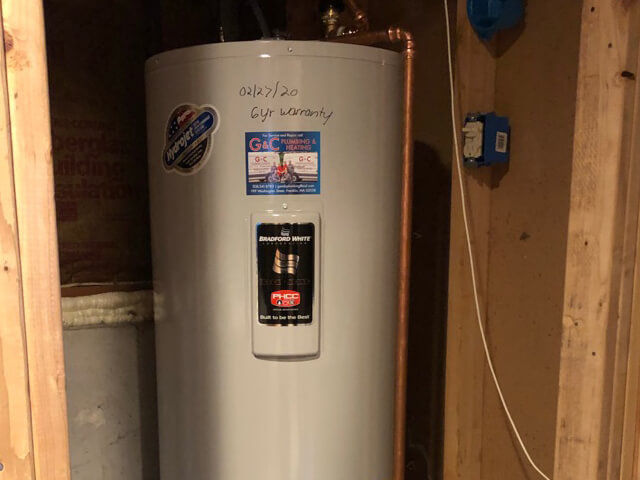As winter approaches and temperatures begin to dip, many households rely on heating oil systems to keep their homes warm and comfortable. However, like any mechanical system, heating oil systems require regular maintenance to operate efficiently and safely. By adopting the best heating oil system maintenance practices, homeowners can extend the lifespan of their heating system, reduce the likelihood of costly repairs, and ensure that their system operates at peak performance when it’s needed most. In this blog post, we’ll explore the essential steps to maintain your heating oil system.
1. Schedule Regular Professional Inspections
The first and most important step in maintaining your heating oil system is to schedule regular professional inspections. A qualified heating technician can identify potential issues before they become serious problems. Ideally, you should have your system inspected once a year, typically before the heating season begins. During an inspection, the technician will check for any signs of wear and tear, leaks, and other issues that may affect the performance of your system.
The technician will also clean the system and ensure that all components are functioning correctly. Regular inspections help catch small problems early, preventing costly repairs and breakdowns down the line.
2. Change the Oil Filter Regularly
The oil filter plays a crucial role in keeping your heating system running smoothly. It filters out dirt, dust, and other debris from the oil before it is burned. Over time, the filter becomes clogged with impurities, reducing the efficiency of your system and potentially leading to a malfunction.
To maintain optimal performance, it’s essential to change the oil filter regularly. For most heating oil systems, the filter should be changed at least once a year, though some systems may require more frequent changes. If you’re unsure how often to change the filter, consult your owner’s manual or ask your heating technician for advice.
3. Monitor Oil Levels
Regularly monitoring your heating oil levels is a simple but essential maintenance task. Running out of heating oil in the middle of winter can leave your home without heat and potentially damage your system. It’s important to check the oil gauge on your tank periodically to ensure that your oil levels remain sufficient.
Additionally, make sure that you schedule oil deliveries in advance to avoid running low during peak demand periods. You can even sign up for automatic oil delivery services, which will ensure that your tank is refilled when it reaches a certain level.
4. Clean the Burner
The burner is one of the most critical components of your heating oil system, as it is responsible for igniting the oil to produce heat. Over time, the burner can accumulate soot, dirt, and other deposits, which can reduce its efficiency and lead to poor combustion. This can result in higher energy bills and increased wear on the system.
Cleaning the burner is a maintenance task best left to a professional technician. A technician will use specialized equipment to clean the burner and remove any buildup that may be affecting its performance. Regular burner cleaning can help keep your heating system running efficiently and extend its lifespan.
5. Inspect the Oil Tank
Your oil tank is an essential part of the heating oil system, and it’s important to ensure that it’s in good condition. Over time, the tank may develop rust, leaks, or cracks, which can lead to oil spills, property damage, and safety hazards. Inspecting your oil tank for signs of wear and tear is an essential maintenance practice.
If you notice any rust, leaks, or other damage to the tank, it’s important to address the issue immediately. A professional technician can help with tank inspections and repairs. In some cases, it may be necessary to replace the tank entirely if it is too damaged.
6. Test the Thermostat
Your thermostat controls the temperature inside your home, so it’s crucial to ensure that it’s working correctly. If your thermostat is malfunctioning, your heating system may not operate efficiently, leading to higher energy bills or an inconsistent temperature throughout your home.
Test your thermostat periodically to ensure that it is reading the correct temperature and responding properly to adjustments. If you notice any issues with the thermostat, such as inaccurate temperature readings or difficulty adjusting the settings, it may need to be calibrated or replaced. Many modern thermostats can be programmed to adjust temperatures based on your schedule, which can help improve energy efficiency.
7. Check the Chimney and Ventilation System
Proper ventilation is essential for the safe and efficient operation of your heating oil system. The exhaust from the burner must be vented outside of the home through a chimney or vent pipe. Over time, the chimney or vent system can become clogged with soot, debris, or even bird nests, which can lead to dangerous conditions, such as carbon monoxide buildup or a fire hazard.
Before the heating season begins, it’s essential to have your chimney or vent system inspected and cleaned by a professional. This will help ensure that the exhaust can flow freely and safely out of your home.
8. Inspect the System’s Air Intake
Another important maintenance task is inspecting the air intake, which allows oxygen into the system for combustion. If the air intake becomes blocked or obstructed, it can cause incomplete combustion, reducing the efficiency of your heating system and increasing the production of harmful gases like carbon monoxide.
Ensure that the air intake is clear of debris, dust, and other obstructions. If you notice any issues with the airflow or hear unusual noises from the system, it’s important to have it inspected by a technician.

9. Bleed the Radiators (If Applicable)
If you have a hot water or steam radiator heating system, it’s important to bleed the radiators periodically. Over time, air can become trapped inside the radiator, which can reduce the efficiency of the heating system and cause uneven heating.
To bleed the radiators, you’ll need a radiator key to release the trapped air. This is a simple task that can often be done by homeowners, but if you’re unsure how to do it, a professional technician can assist.
10. Consider Upgrading Your System
While maintaining your current heating oil system is essential, it may be worth considering upgrading to a more energy-efficient model. Newer heating oil systems are designed to be more efficient and environmentally friendly, which can save you money on energy bills in the long run.
Additionally, some newer models come with advanced features, such as programmable thermostats, improved burners, and better insulation, which can further improve your system’s performance and longevity. A cool way to improve efficiency is by considering an upgrade to a more modern system with these enhancements. A heating technician can help you evaluate whether upgrading your system is the right choice for your home.
Conclusion
Proper maintenance of your heating oil system is essential to ensure that it runs efficiently and safely throughout the heating season. By scheduling regular professional inspections, changing filters, monitoring oil levels, cleaning components like the burner, and addressing any potential issues promptly, you can extend the lifespan of your system and reduce the likelihood of costly repairs. Don’t forget to regularly inspect your oil tank, chimney, and ventilation system, as these are crucial for both efficiency and safety.
By following these best practices, you’ll not only keep your home warm during the cold winter months but also enjoy peace of mind knowing that your heating oil system is running smoothly.




